
Eugenio Montale was an Italian poet, prose writer, editor and translator, and recipient of the 1975 Nobel Prize in Literature.

Piero Gobetti was an Italian journalist, radical liberal intellectual and anti-fascist. He was an exceptionally active campaigner and critic in the crisis years in Italy after the First World War and into the early years of Fascist rule.
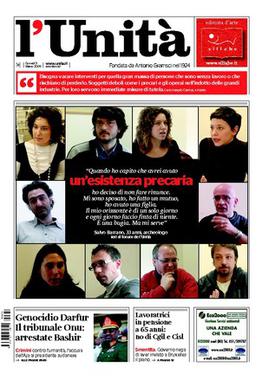
l'Unità is an Italian newspaper, founded as the official newspaper of the Italian Communist Party (PCI) in 1924. It was supportive of that party's successor parties, the Democratic Party of the Left, Democrats of the Left, and, from October 2007 until its closure in 2017, the Democratic Party.

Leone Ginzburg was an Italian editor, writer, journalist and teacher, as well as an important anti-fascist political activist and a hero of the resistance movement. He was the husband of the renowned author Natalia Ginzburg and the father of the historian Carlo Ginzburg.

Massimo Bontempelli was an Italian poet, playwright, novelist and composer. He was influential in developing and promoting the literary style known as magical realism.

Giacomo Debenedetti was an Italian writer, essayist and literary critic. He was one of the greatest interpreters of literary criticism in Italy in the 20th century, one of the first to embrace the lessons of psychoanalysis and the human sciences in general, and among the first to grasp the full extent of Marcel Proust's genius.
Augusto Monti was an Italian writer and professor.
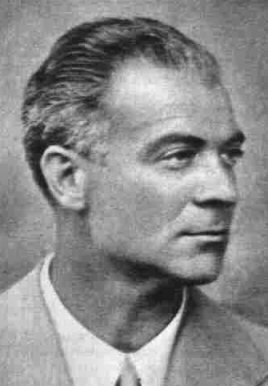
Mario Gromo was a journalist, writer and Italian film critic.

Guido Seborga, pseudonym of Guido Hess, was an Italian journalist, poet, painter and writer.

Leopoldo "Leo" Longanesi was an Italian journalist, publicist, screenplayer, playwright, writer, and publisher. Longanesi is mostly known in his country for his satirical works on Italian society and people. He also founded the eponymous publishing house in Milan in 1946 and was a mentor-like figure for Indro Montanelli.
Il Frontespizio was an Italian art and literary magazine, which had a Catholic perspective. The magazine existed between 1929 and 1940 and was based in Florence, Italy.
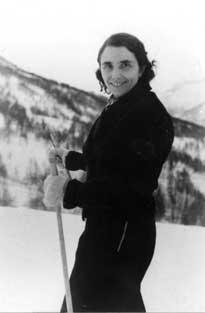
Ada Gobetti was an Italian teacher, journalist and anti-fascist leader.
Tommaso Fiore was an Italian meridionalist writer and a socialist intellectual and politician. He is known for his attention and his descriptions and studies on the inhumane conditions of Southern Italian and often specifically Apulian peasants at that time. He is also known for his Viareggio Prize-winning book Un popolo di formiche. In the 1920s, he was appointed as mayor of his hometown Altamura. During the twenty-year period of the Italian Fascist era, he strenuously opposed the regime before being sent into internal exile in 1942 and then being jailed in 1943.
Natalino Sapegno was a literary critic and Italian academician. He came to prominence as a leading scholar of fourteenth century Italian literature.
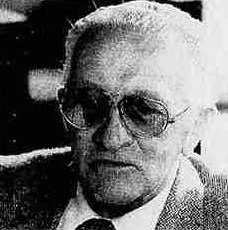
Massimo Mila was an Italian musicologist, music critic, intellectual and anti-fascist.
Il Selvaggio was a political and arts magazine that existed between 1924 and 1943. It was a media outlet of an intellectual group called Strapaese.
Il Caffè was an anti-Fascist Italian magazine which was published for a short period between 1924 and 1925 in Milan during the Fascist rule in Italy. Its title was a reference to an enlightenment publication with the same name, Il Caffè, which was also based in Milan and founded and edited by Alessandro and Pietro Verri from 1764 and 1766.
Riccardo Bauer (1896–1982) was an Italian anti-fascist journalist and political figure. He was one of the early Italians who fought against Benito Mussolini's rule. Due to his activities Bauer was imprisoned for a long time and was freed only after the collapse of the Fascist rule in 1943.
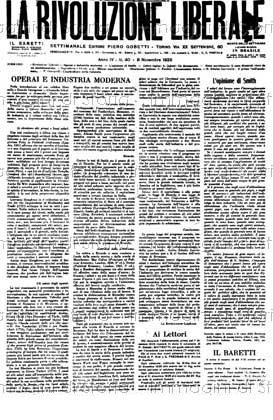
La Rivoluzione Liberale was an Italian anti-Fascist liberal magazine which was published on a weekly basis in Turin between 1922 and 1925. The magazine is mostly known for its founder, Piero Gobetti.
Il Ponte is a political and literary magazine in Milan, Italy, which has been in circulation since April 1945.











